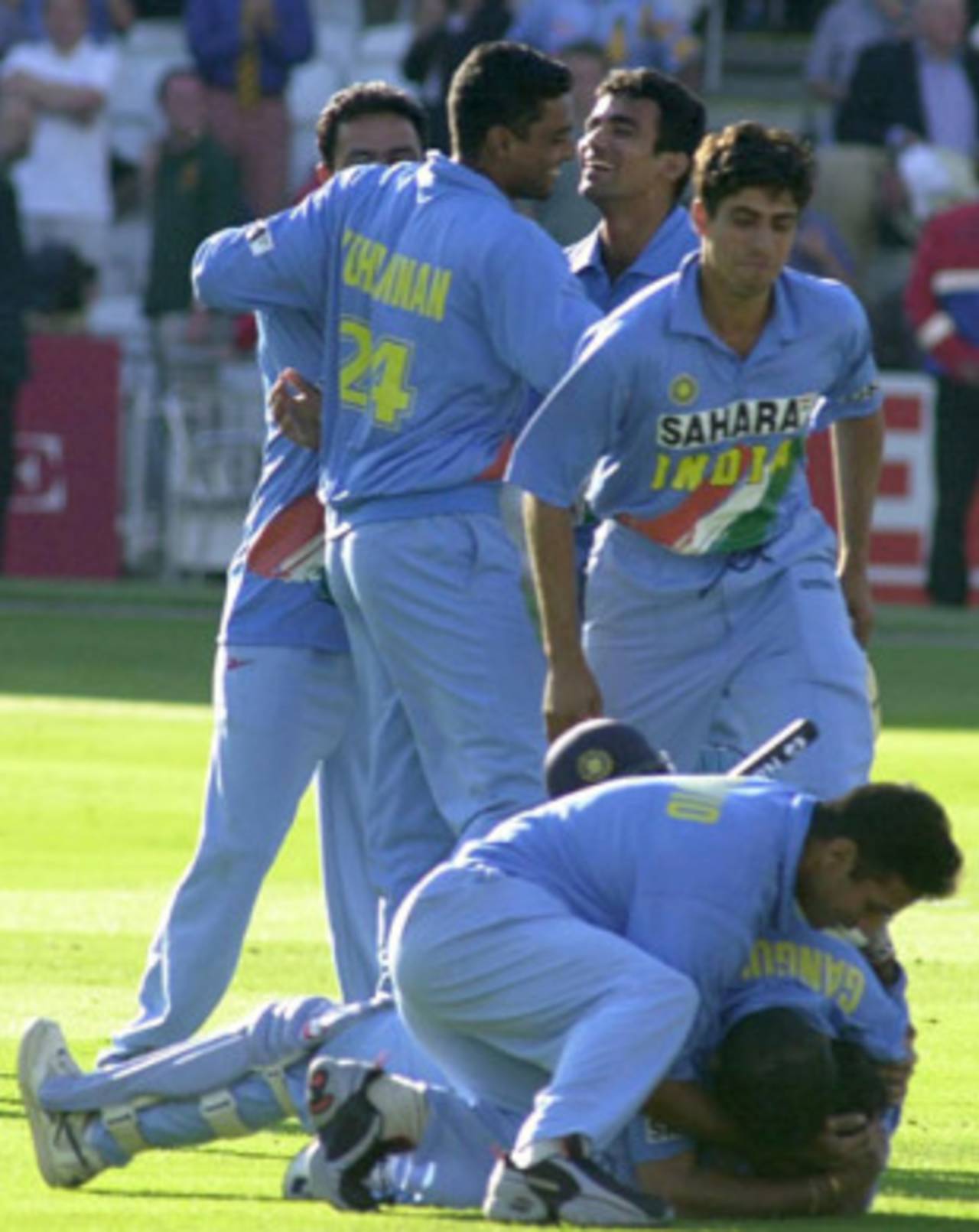Cricket teams rarely become good overnight. It takes time. They take one step, and then another. The confluence of talented players, intelligent coaches, luck and the best laid plans, help teams become better.
Allan Border and Steve Waugh speak fondly of the '86 tour of India and how big a step that was in their evolution from pushovers to world-beaters. Mark Taylor looks back at their miserable tour of India in '98 and how the lessons learned made Australia a formidable opponent even in the subcontinent for the next decade.
As for the Indian team which had muddled through two decades of mediocrity away from home,
July 13, 2002, was a seminal moment.
On that day, a generation of Indian cricketers helped the country and fan base conquer their twin demons of chasing scores and playing away from home, in a dazzling and spectacular manner.
For a generation of fans used to Dhoni's escapades (like the one in the
tri-series final), it was not always like this.
Once upon a time, India were bad chasers, with fans dreading a chase which involved Sachin Tendulkar getting out early. To truly quantify the size of the demons we are dealing with here, some cruel numbers need to be revisited. During the period between the 1996 and 1999 World Cups, India heavily relied on the bat of Tendulkar. Sourav Ganguly was able to provide some much-needed support, but India, more often than not, ended up as losers when chasing targets. In a four-year span against teams not named Zimbabwe or Bangladesh, India only had two wins chasing when Tendulkar failed to score a fifty. Between January 31,1999, and July 13, 2002, India lost nine successive ODI finals. Five of those defeats were while chasing.
Cometh the big game, choketh the side, it seemed.
So, when Nasser Hussain and Marcus Trescothick blunted and decimated the Indian bowlers en route to England's highest-ever ODI score, Indian fans like myself had a sense of déjà vu that only a fellow tormented fan could understand.
And when India, after a brisk start, lost five wickets (including that of Tendulkar's) for 40 runs, the déjà vu turned into fatalism and a "why us" diatribe to the cricket gods.
I even turned the TV off and ran away from it. Thank the gods that the protagonists were not as fatalistic as their fans, for two fearless, young men decided that Lord's was not the place for history to supersede the future.
In a partnership of the ilk which was rare at the time,
Mohammad Kaif and
Yuvraj Singh pooh-poohed any possible mental or emotional baggage. Buoyed by an aggressive captain who backed his players to the limit, and a coach who had planned for that very situation, the two turned the game on its head.
I watched every ball from the 35th over onwards. The India fan in me that had been beaten to death by years of futile and failed chases, kept the reverse-jinx going. "Won't last", "eyewash" and "England will win" accompanied every run scored. But the cricket fan in me which sensed talent and special moments, kept telling me that this I was witnessing history in the making.
Deep down, I knew the cricket fan was right. The Indian contingent was rocking, and with 12 needed off 13, this was a 'make or break' moment. Had the cursed chasers of the past two decades carried their rotten luck over to the new millennium? Or was this team going to finally announce itself to the world with the most incredible chase?
Kaif and Zaheer would win with three balls to spare. The eventual euphoria (Ganguly memorably removed and waved his shirt) was drowned out by enormous relief; in one afternoon, a single chase had destroyed years of pent-up defeatism, as the fan base would never fear chasing targets so much, ever again.
In the years to follow, a traumatic 2007 World Cup aside, India built on their new-found fearlessness as the team continued to chase down many more daunting totals.
For a generation who had endured nightmarish losses at so many venues, and for a fan base who believed a chase to be over once Tendulkar got out, that evening in London will forever be etched in memory as the day India learnt to chase.
If you have a submission for Inbox, send it to us here, with "Inbox" in the subject line 